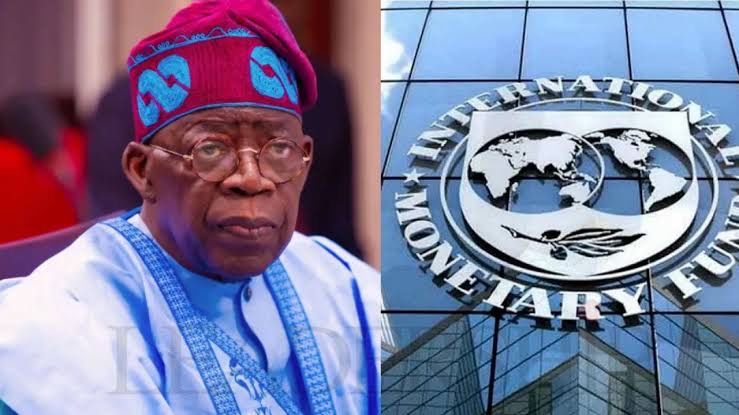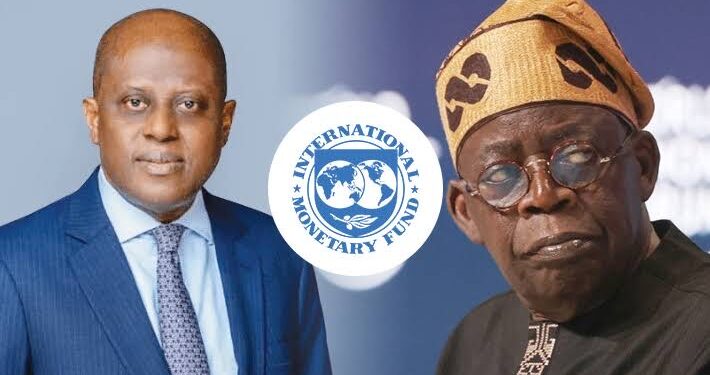The International Monetary Fund (IMF) has lowered its forecast for Nigeria’s economic growth to 3.1% in 2024.
This is according to a new July 2024 World Economic Outlook report released on Tuesday. The IMF cited slower growth in the first quarter of this year (Q1 2024) as the reason for the new forecast.
The downgrade is 0.2 percentage points lower than the previous forecast of 3.3%. The downgrade follows weaker-than-expected gross domestic product, GDP, and growth in the first quarter of 2023.
However, the IMF maintained its forecast for Nigeria’s economic growth of 3.0% in 2025. The report stated that “The forecast for growth in sub-Saharan Africa is revised downward, mainly as a result of a 0.2 percentage point downward revision to the growth outlook in Nigeria amid weaker than expected activity in the first quarter of this year.”

For the global economy, the IMF maintained its growth forecasts of 3.2% in 2024 and 3.3% in 2025.
The IMF declared: “The global economy is in a bind. Global growth is expected to slow to 3.2% in 2024 and 3.3% in 2025, in line with the April 2024 World Economic Outlook (WEO) forecast.
“However, changes in economic conditions at the start of the year have led to a slight narrowing of the output gap between economies as cyclical factors weaken and economies better adjust to their potential.
“Services price inflation has delayed progress towards disinflation, making monetary policy normalization difficult.
As a result, upside risks to inflation have increased, and interest rates are expected to remain elevated for a prolonged period amid intensifying trade tensions and growing political uncertainty.
“To manage these risks and sustain growth, the policy mix should be carefully balanced to achieve price stability and replenish diminished buffers.
“It will be recalled that National Bureau of Statistics (NBS) data showed that Nigeria’s economic growth picked up quarter-on-quarter. Gross domestic product (GDP) growth in the quarter slowed to 2.98% in the first quarter of 2024 from 3.46% in the fourth quarter of 2023 (ending March 2023).
Following the downward revision of Nigeria’s economic growth forecast, the IMF also lowered its sub-Saharan economic growth forecast for 2024 to 3.7% from 3.8% in April. It, however, raised its economic growth forecast for the region to 4.1% from 4.0% for 2025.

According to the latest data from the NBS, this development comes after Nigeria’s inflation rate hit a new high, hitting 34.19% in June 2024. This is an increase of 0.24% compared to the May 2024 inflation rate released by the NBS.
“The headline inflation rate for June 2024 increased to 34.
19% compared to the headline inflation rate of 33.95% in May 2024. Looking at the development, the headline inflation rate for June 2024 showed an increase of 0.24 percentage points compared to the headline inflation rate for May 2024,” the NBS said in its Consumer Price Index (CPI) released on Monday. It measures the goods and services people consume for their daily needs over time.
“Year-on-year, the headline inflation rate was 11.40 percentage points higher than the 22.79% recorded in June 2023.
“According to the NBS, the inflation rate for June 2024 saw a sharp increase compared to the same month last year. On a monthly basis, inflation stood at 2.31 percent in June 2024, 0.17 percentage points higher than the inflation rate recorded in May 2024 (2.14 percent), it said.
“This means that the rate of increase in the average price level in June 2024 was higher than the rate of increase in the average price level in May 2024,” the agency said.

































